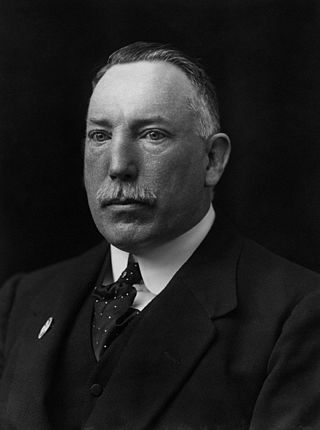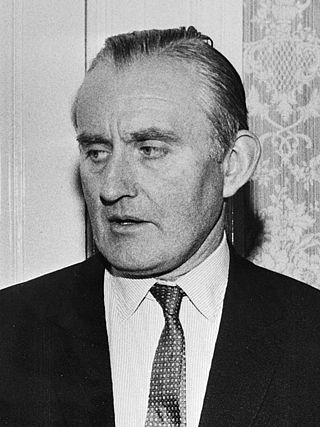
The 2003 Northern Ireland Assembly election was held on Wednesday, 26 November 2003, after being suspended for just over a year. It was the second election to take place since the devolved assembly was established in 1998. Each of Northern Ireland's eighteen Westminster Parliamentary constituencies elected six members by single transferable vote, giving a total of 108 Members of the Legislative Assembly (MLAs). The election was contested by 18 parties and many independent candidates.

Belfast South was a parliamentary constituency in the United Kingdom House of Commons.

North Down is a parliamentary constituency in the United Kingdom House of Commons. The current MP is Alex Easton, elected at the 2024 United Kingdom general election.
The by-election held in Fermanagh and South Tyrone on 9 April 1981 is considered by many to be the most significant by-election held in Northern Ireland during the Troubles. It saw the first electoral victory for militant Irish republicanism, which the following year entered electoral politics in full force as Sinn Féin. The successful candidate was the IRA hunger striker Bobby Sands, who died twenty-six days later.
This is an overview of United Kingdom general election results since 1922. The 1922 election was the first election in the new United Kingdom of Great Britain and Northern Ireland, after the creation of the Irish Free State removed Southern Ireland from the UK.

The 1923 United Kingdom general election in Northern Ireland was held on 6 December as part of the wider general election. There were ten constituencies, seven single-seat constituencies with elected by FPTP and three two-seat constituencies with MPs elected by bloc voting. Only three of the constituencies had contested elections.

The 1931 United Kingdom general election in Northern Ireland was held on 27 October as part of the wider general election. There were ten constituencies, seven single-seat constituencies with MPs elected by FPTP and three two-seat constituencies with MPs elected by bloc voting.

The 1935 United Kingdom general election in Northern Ireland was held on 14 November as part of the wider general election. There were ten constituencies, seven single-seat constituencies with elected by FPTP and three two-seat constituencies with MPs elected by bloc voting.

The 1950 United Kingdom general election in Northern Ireland was held on 23 February as part of the wider general election. The Representation of the People Act 1948 reorganised constituencies: all MPs were now elected single-seat constituencies using FPTP, ending the two-seat constituencies which had been in place till then, and the university constituency of Queen's University of Belfast was abolished.

The 1951 United Kingdom general election in Northern Ireland was held on 25 October as part of the wider general election with 12 MPs elected in single-seat constituencies using first-past-the-post.
The 1955 United Kingdom general election in Northern Ireland was held on 26 May as part of the wider general election with 12 MPs elected in single-seat constituencies using first-past-the-post.
The 1959 United Kingdom general election in Northern Ireland was held on 8 October with 12 MPs elected in single-seat constituencies using first-past-the-post as part of the wider general election in the United Kingdom.

The 1964 United Kingdom general election in Northern Ireland was held on 15 October with 12 MPs elected in single-seat constituencies using first-past-the-post as part of the wider general election in the United Kingdom.

The 1970 United Kingdom general election in Northern Ireland was held on 31 March with 12 MPs elected in single-seat constituencies using first-past-the-post as part of the wider general election in the United Kingdom. It was the first general election held after the Representation of the People Act 1969 which reduced the voting age from 21 to 18.

The February 1974 United Kingdom general election in Northern Ireland was held on 28 February with 12 MPs elected in single-seat constituencies using first-past-the-post as part of the wider general election in the United Kingdom.

The October 1974 United Kingdom general election in Northern Ireland was held on 10 October with 12 MPs elected in single-seat constituencies using first-past-the-post as part of the wider general election in the United Kingdom.
The 1979 United Kingdom general election in Northern Ireland was held on 3 May with 12 MPs elected in single-seat constituencies using first-past-the-post as part of the wider general election in the United Kingdom.

The 2019 United Kingdom general election was held on 12 December 2019 to elect all 650 members of the House of Commons, including 18 seats in Northern Ireland. 1,293,971 people were eligible to vote, up 51,273 from the 2017 general election. 62.09% of eligible voters turned out, down 3.5 percentage points from the last general election. For the first time in history, nationalist parties won more seats than unionist parties.









